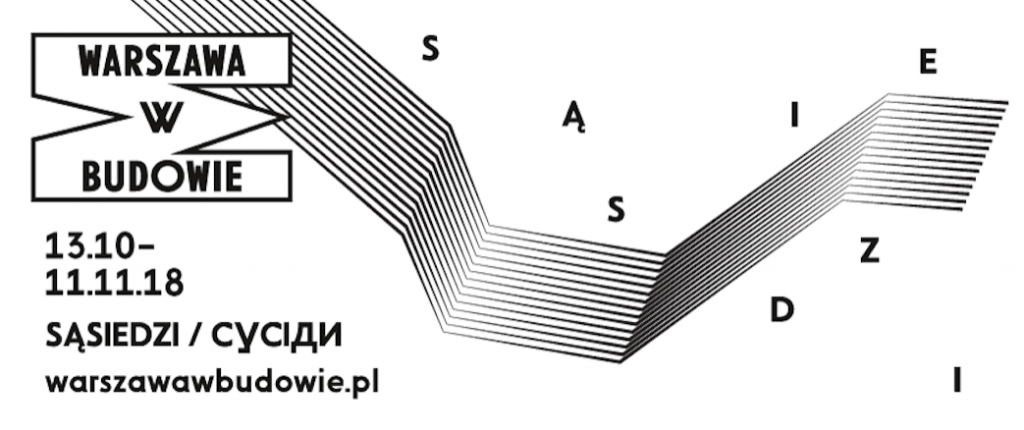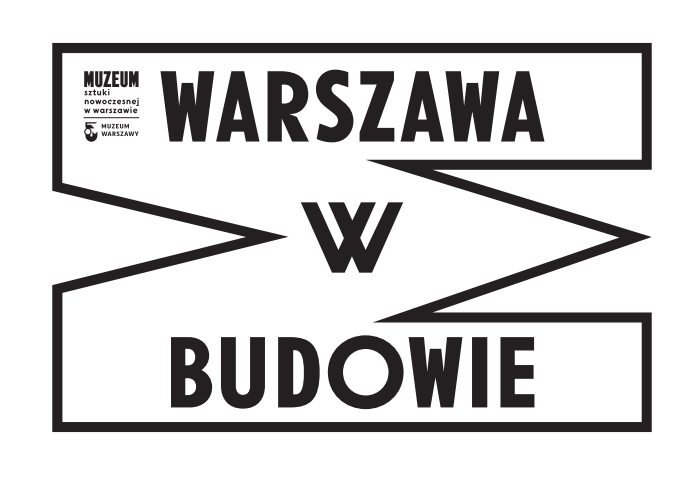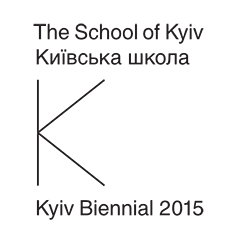NEIGHBORS. Public Program:
 Museum of Modern Art
Museum of Modern Art
Warsaw, 3 Pańska St.
October 13, Saturday
19:00
“Neighbors”
Opening of the festival’s exhibition at Cepelia (99/101 Marszałkowska St.)
In Warsaw, as in many other Polish cities, it is becoming more and more likely that your neighbor next door is Ukrainian. Or, for that matter, Belorussian, Moldovan, Russian, Georgian, Uzbek etc. The growing influx of migrants from beyond the Eastern border means that Poland, for the first time since the end of WWII, ceases to be a mono-ethnic state. The 10th edition of Warsaw Under Construction reacts to this situation by decentralizing the festival, introducing a rupture within the exhibition’s logic that would reflect the changes taking place in Polish society on the level of the structure of the project itself.
21:30
Afterparty at barStudio (1 Plac Defilad)
October 14, Sunday
14:00
Curatorial guided tour through the festival’s exhibition at Cepelia by VCRC (in English with consecutive translation into Polish)
The festival’s exhibition can be read as a collection of diverse artistic approaches that take a timely look at social processes and how they’ve been shifted as the presence of new neighbors becomes increasingly apparent. The curators will draw to the foreground the artistic statements that refer to the situation in Ukraine as a result of the widespread discontent with the nation’s political situation, compounded by the ongoing military conflict, as well as the hurried ‘decommunization’ policy and the sweeping tide of ultra-nationalist movements.
16:00
Presentation of the Kyiv part of the festival by Natalia Neshevets and Serge Klymko (Ukraine) & discussion with Tomasz Świetlik (Poland) about interventions into semi-public space
The Kyiv part of the festival focused on urbanistic research and intervention into marginalized and forgotten routes of collective cohabitation in the city. It was located at the abandoned street that once connected the historical part of uphill city – Lvivska square with manufactory and workmen housing district of Hlybochytsa river valley. This route has fallen into oblivion with the collapse of the Soviet Union and became a spot of unrealized developing dreams, city fauna and a garage cooperative hosting a small creative community of graffiti writers, musicians and artists. The festival’s program reclaimed the place for public use providing a discursive space for collaboration between artists, scholars, urban activists and involving site-specific work, film screenings and series of workshops.
Film screening of Landslide (2016) by Oleksiy Radynski (Ukraine)
The film is about an attempt to build “a society, which will be radically different from everything else that surrounds us” (to quote the film’s protagonists). This attempt is taking place in the very center of Kyiv, in the area reclaimed by the forces of nature. Landslide, degradation of urban politics and disintegration of social ties led to the emergence of anarchic, uncontrolled enclave in the city center. That is how the idea of “utopia, here and now” was born. Representatives of street art, music scene and theater avant-garde take part in the making of this utopia.
18:00
“Door to Door”
Discussion on the topics of the festival’s exhibition with curators Oksana Briukhovetska, Anna Kravets, Hanna Tsyba (Ukraine) and artists Nikita Kadan, Dana Kosmina (Ukraine), Aleka Polis, Waldemar Tatarczuk (Poland)
Moderated by Ewa Sułek (Poland)
The idea of ‘neighbors’ in the exhibition is imagined in a state of constant flux, precarity and transformation, rather than permanent, stabilized co-existence. Curators of the project together with artists from Ukraine and Poland discuss the multiple perspectives explored in the show – ongoing flows of migration in the European cities, the ideological battle that evolves in the public space and the new rise of ethnic hostility, underrepresented participation of women in the processes of forming the city space – and how they are reflected in the Radio International sonic project.
The events will be held in English
October 15, Monday, 08:00
“Rosa Rotes”
Performance by Aleka Polis (Poland) with the participation of Dana Kosmina (Ukraine) in front of the Ministry of Family, Labor and Social Policy (1/3/5 Nowogrodzka St.)
An artistic protest against humiliating treatment of workers will take the form of washing the pavement with rags together with a Ukrainian who has higher education and is socially stigmatized for this type of work. The manifesto printed on the rags claims the unity and strengthening of the weak against depreciation of labor, mobbing, violence, exploitation and unequal distribution of goods through voicing the injustices that affect us. The documentation of the performance together with the used rags will be shown at the festival’s exhibition.
20 October, Saturday, 11:00
“Unwanted Heritage: Monuments of the Polish People’s Republic”
City walk through the places of missing and (yet) existing monuments of the Polish People’s Republic by Ewa Perlińska-Kobieżyńska (Poland)
Meeting: Plac Bankowy, at the monument to Juliusz Słowacki
Beginning from Bank Square (formerly Dzierżyński Square), we will visit sites where monuments from the communist era stood or are still standing. We will focus on monuments to figures (politicians and soldiers) important for the prior system as well as monuments of ‘gratitude’ to the Red Army. Once they served an ideological function, and over time became a fixed element of Warsaw’s public space. Now they are a rejected heritage. The topic is highly urgent following the introduction of a law calling for “removal from public space of monuments promoting communism or other totalitarian systems.”
21 October, Sunday
14:00
Guided tour through the festival’s exhibition at Cepelia (in Polish)
16:00
“Commercial Architecture of Post-War Warsaw”
Lecture by Ewa Perlińska-Kobieżyńska (Poland)
This year’s Warsaw Under Construction festival is being held in the space of the Cepelia pavilion. Its architecture and interior, originally serving commercial functions, pose the question of the context in which the building was created. The thaw of 1956 brought a new phase of modernist architecture as a synonym for a broader longed-for modernity. In commercial architecture, this included the lightly glazed structure of trade pavilions. The first pavilion, “Śródmieście,” was built on Marszałkowska Street, followed by others such as “Chemia” and “Cepelia.” The 1960s were also an era of construction experiments, as exemplified by the pavilions but also larger service buildings such as “Supersam.”
The events will be held in Polish
October 27-28, Saturday-Sunday
“Kyiv Under Construction”
Screenings and presentations of Ukrainian urban projects
27 October, Saturday, 17:00
Film screenings with the introduction by Vasyl Cherepanyn and Svitlana Shymko (Ukraine):
The Fall of Lenin (2017) by Svitlana Shymko
An ironic documentary film about the farewell to the phantoms of the USSR in Ukraine. The spiritual session with the ghost of Lenin guides us through our past, present and future. The film presents the dawn and the twilight of idols, and the curious afterlife of history’s ghosts.
Ма (2017) by Maria Stoyanova
Mom is feeding great tits from the window of her high-rise building in Mariupol, and growing queen apples in her summerhouse near the battle line. To show her simple life, she shoots videos on her small camera for her daughter, who lives in the capital and is hard to reach. To try to keep the conversation going, she feeds her overgrown child with sponge mushrooms and fairytales.
Varta1, Lviv, Ukraine (2016) by Yuriy Hrytsyna
An attempt to reconstruct the atmosphere and the reactions at the end of the Euromaidan, when activists in Lviv (Ukraine) started to perform law enforcement functions. The film uses the activist patrols’ walkie-talkie communications to ask questions about the nature of the revolution, law and self-organization. The film tries to look at the mundane spaces of the city, and to understand whether the historical and revolutionary uncertainty is still there.
28 October, Sunday
14:00
Guided tour through the festival’s exhibition at Cepelia (in Polish)
17:00
Presentations of the initiatives and researches on modernist architecture in Ukraine:
Soviet Modernism, Brutalism, Postmodernism architectural project by Oleksiy Bykov
Balcony Chic photo project by Oleksandr Burlaka
“The City and Its Landscape: Economic and Ideological Clashes Over Modernist Architecture and Memory in Kyiv and Warsaw”
Discussion with the participation of Oleksandr Burlaka, Oleksiy Bykov (Ukraine), Tomasz Fudala (Poland)
Moderated by Alicja Gzowska (Poland)
One of the focal points of the festival is the ways the notion of architecture, and the position of its creators, is currently transformed by local or transnational market mechanisms, or by past and present political ideologies. In Ukraine, anti-Soviet sentiment has risen since the government launched in 2015 a ‘decommunization’ campaign to get rid of the symbols of communist rule, which, apart from toppling Lenin statues and renaming cities and streets, also put country’s modernist heritage of the Soviet period under threat. A number of presentations and talks dealing with the urgency to preserve and protect Soviet modernist architecture will be accompanied with a series of film screenings on the topic of uprising and displacement in the city space. The discussants will also analyze the conditions of the Polish architectural heritage after 1989 and the changes of the urban landscape made for economic reasons or political purposes of ‘decommunization’.
The events will be held in English
November 3-4, Saturday-Sunday
“New Neighborhoods”
November 3, Saturday, 17:00
Presentation of “New Neighborhood / Moabit” initiative by Marina Naprushkina (Germany)
Moderated by Vasyl Cherepanyn (Ukraine)
An independent social and artistic space “New Neighborhood / Moabit” was founded by a Berlin-based artist, activist and author of a Belarussian origin Marina Naprushkina in 2013, at the time of the need to support refugees in the Moabit area. “New Neighborhood / Moabit” has developed into one of Berlin’s largest self-organized civil initiatives that creates a situation of “meeting” for old and new neighbors, people from different countries, with different social backgrounds, regardless of age, sexual orientation, and religion. It operates as an educational project in which the participants share their experiences and work on the creation of new forms of collective.
The event will be held in English
November 4, Sunday, 17:00
Discussion on Ukrainian migrants and refugee policies in Poland with the participation of Ignacy Jóźwiak, Miroslava Keryk, Antoni Wiesztort, Piotr Wójcik (Poland)
Moderated by Olena Babakowa (Poland)
The exponentially growing wave of migration from Ukraine to Poland is not a one-way street. It profoundly changes the economic, political and social functioning of both countries. Still, the significance of a swiftly enlarging Ukrainian community in Poland goes beyond mere numbers. The Polish government is bragging about its ‘acceptance of one million Ukrainian refugees’, although the real number of accepted refugees from Ukraine is in single digits. The rest should be qualified as labor migrants, but they are used as a convenient shield to evade the EU migrant quotas. ‘The Ukrainians’ are becoming a metaphorical, mythic community – even though the Polish economy relies to a great extent on their underpaid labor. The participants will discuss the contradictions of the Polish migration policy revealing the discontents of the EU Southern and Eastern neighborhood Ersatzpolitik.
The event will be held in Polish
November 10, Saturday
16:00
“Anti-Communism Deconstructed”
A symposium with the participation of Jodi Dean (USA), Maciej Gdula (Poland), David Ost (USA), Jan Sowa (Poland)
Moderated by Vasyl Cherepanyn (Ukraine)
A spectre is haunting Europe – the spectre of communism. All the powers of old Europe have entered into a holy alliance to exorcise this spectre: Merkel and Putin, Orbán and Macron, right-wing radicals and Brexiteers. From ‘decommunization’ in Ukraine and Poland to Germany’s “GDR has never existed”, from counter-revolutionary authoritarian regimes in Russia and Turkey to ruling populists in Austria and Italy communism seems to be treated and fought against as if it was not a symbolic remnant from the half-forgotten period before the proclaimed ‘end of history’ but a living ideological enemy still present on the political agenda. Perhaps, it is this anti-communism without communists that serves as a common negative signifier of all the political trends usually gathered today under the term ‘illiberalism’. What are the social drives and class background of such a widespread ressentiment? How is declared anti-communism paving the path to neo-fascism normalizing newly emerged avatars of the old ideologies of hatred? Why is it needed in today’s discriminatory practices in the entourage of anti-migrant consensus and anti-Semitic backlash? By clashing with the political forces that define the current status quo on a global scale, the discussants will scrutinize the European unconscious in its present mode.
19:00
“Communism’s Coming Home”
Film screening of Ceremony (2017) and talk by Phil Collins (Great Britain)
Moderated by Vasyl Cherepanyn (Ukraine)
A documentary film following the journey of a 1970 statue of Friedrich Engels from a village in Ukraine – removed from public view as part of the process of ‘decommunization’ – to Manchester, where it has been installed in the city center as a permanent monument. Engels lived in Manchester for over twenty years, and the experiences from his first stay in the city (between 1842 and 1844) informed his renowned 1845 treatise The Condition of the Working Class in England. The travelogue is combined with the footage from the day of the statue’s inauguration in July 2017 at a large scale live event and stories of today’s workers whom Phil Collins met over the course of a year. Artist’s relocation gesture has launched a series of debates on the legacy of Engels and relevance of communist thought in post-Brexit Europe and beyond.
The events will be held in English
11 November, Sunday
“Hasn’t Yet Died”
Finnisage of the festival
14:00
Guided tour through the festival’s exhibition at Cepelia (in Polish)
16:00
Curatorial guided tour through the festival’s exhibition at Cepelia by VCRC (in English with consecutive translation into Polish)
The festival’s exhibition can be read as a collection of diverse artistic approaches that take a timely look at social processes and how they’ve been shifted as the presence of new neighbors becomes increasingly apparent. The curators will draw to the foreground the artistic statements that refer to the situation in Ukraine as a result of the widespread discontent with the nation’s political situation, compounded by the ongoing military conflict, as well as the hurried ‘decommunization’ policy and the sweeping tide of ultra-nationalist movements.
Curated by Vasyl Cherepanyn (Visual Culture Research Center, Kyiv) and Szymon Maliborski (Museum of Modern Art in Warsaw)

![]()
![]()

